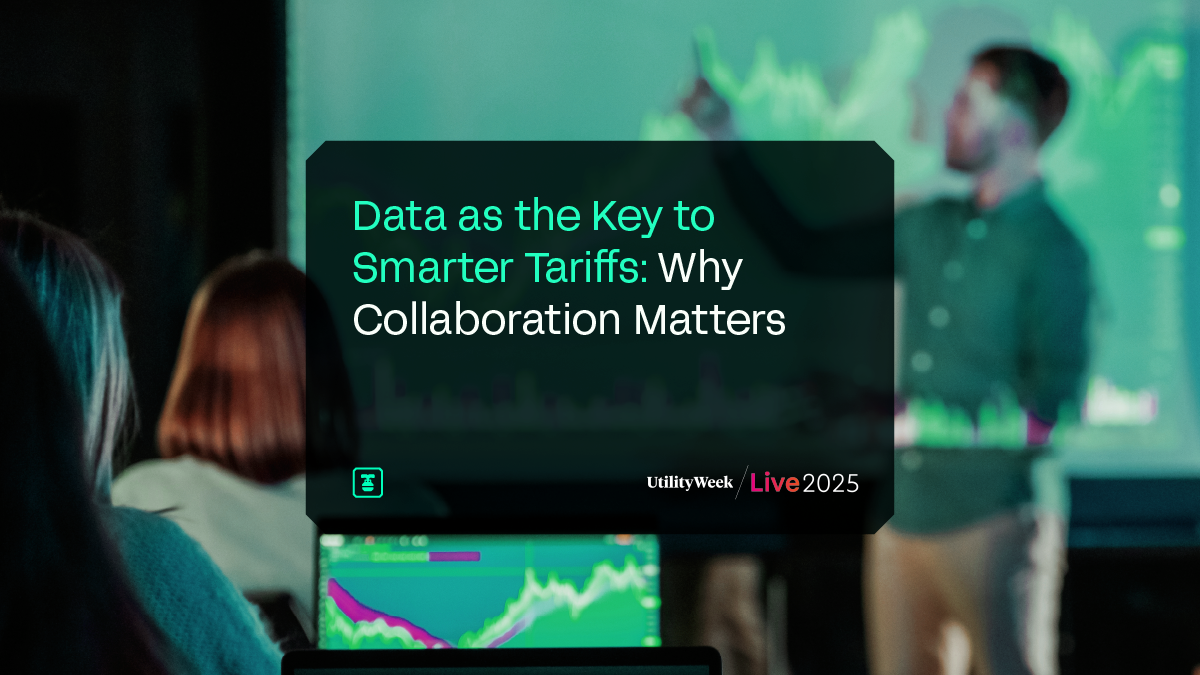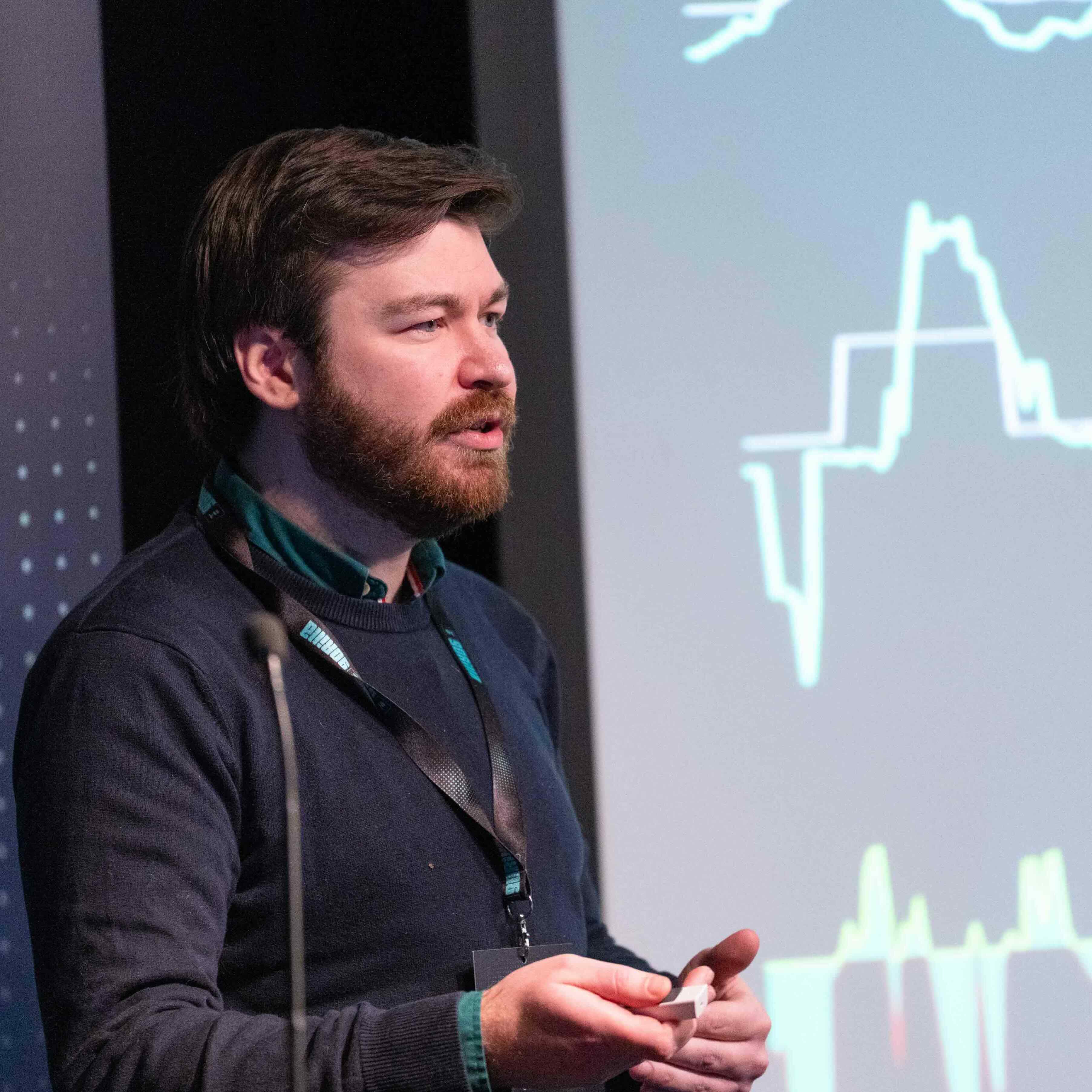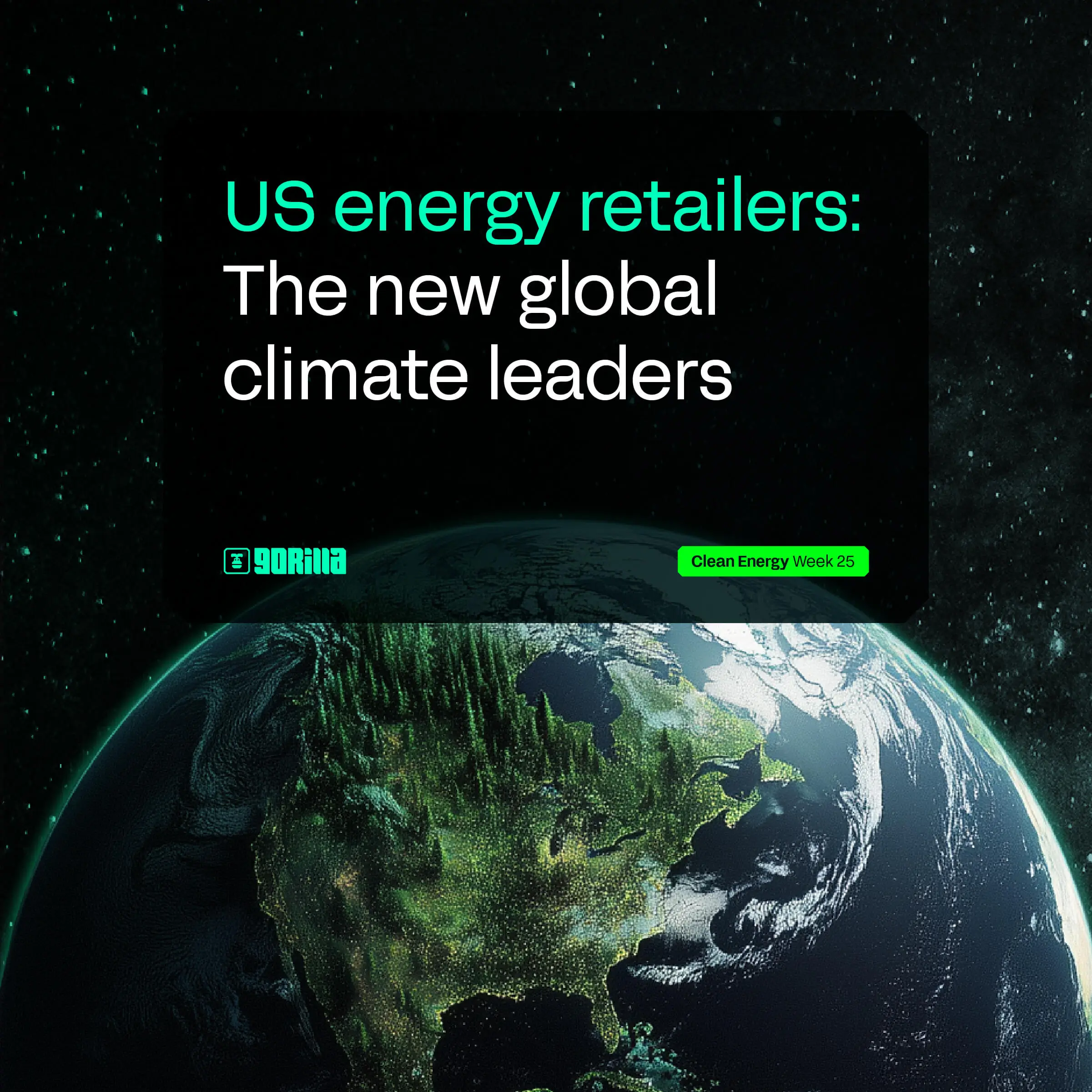
Right then. Another conference season is behind us – Utility Week Live, this time. Another round of enthusiastic talks, more industry buzzwords than you can count, and, of course, free pens. I was there too, giving a talk called “Data as the Key to Smarter Tariffs: Why Collaboration Matters.” What I really wanted people to take away from it was pretty simple: "We shouldn’t be competing on who can find data. We should be competing on who can do the best things with it."
.png)
I’ve been around long enough to know that talking about "data innovation" makes some people switch off. You’re probably thinking, “Here we go again! Another pitch about how data is the new oil or gold or whatever.” Fair enough. I’ve seen my share of big transformation plans that quietly fade away, and shiny new platforms that no one ends up using.
But here’s the thing. I still believe the key is using data well, not just collecting it.
The magnificent muddle: Most data strategies
For years, the goal in energy retail was to collect as much data as possible. Who had the most smart meter reads? Who had the most detailed usage history? We were like magpies, chasing shiny bits of data. The thinking seemed to be: if we had enough of it, great things would just... happen. Smarter tariffs, accurate forecasts, better service.
But that didn’t really pan out, did it?
Instead, we’re drowning in data and it’s everywhere - Hourly reads, daily reads, customer info, weather patterns, market messages. And yet, when it comes to actually doing something useful with all of it - like pricing smarter, forecasting better, or figuring out why someone suddenly used twice as much energy - we often hit a wall. The data exists, but it’s scattered, messy, or no one knows what to do with it beyond sending out slightly better bills than last year.
That’s what “competing on who can find data” really looks like. It’s a race to nowhere. We end up building more silos, not better services. And to be honest, it’s all a bit dull.
.png)
"Doing the best things with it." What a novel concept.
So if stockpiling data isn’t the answer, what about the second part of that quote: Doing something useful with it?.
For people in energy retail - pricing teams creating new offers, forecasters trying to guess demand, IT folks trying to tie it all together - this isn’t just theory. It's real.
It means creating tariffs that are actually smart, not just time-of-use pricing that causes a mad rush to turn things off at 4 p.m. It means understanding how people really use energy so we can give them products that make sense and maybe even save them money without needing a PhD to figure it out.
It means forecasts that aren’t just educated guesses, so we can hedge better and give customers more stable prices. It means breaking our customer base into useful groups so we can talk to them properly, instead of blasting out the same message to everyone and annoying half of them.
In short, it means turning all that data into insight. Insight that helps people make better decisions, run things more smoothly, and keep customers happy. Revolutionary? Maybe not. But still very needed.
Ah, collaboration. That old chestnut.
So how do we go from swimming in data and struggling to use it to where we want to be?
That’s where “collaboration” comes in.
I know we’ve all sat in those cross-team workshops that start with awkward Zoom intros and end with action points that no one ever follows up on. We’ve all heard about industry-wide data sharing ideas that stall because of “commercial reasons. But still, I really believe that if we want to use data better, we have to work together. Especially for energy retailers.
Let’s forget the big-picture collaborations for a second. Let’s just talk about working better inside our own companies. How often do pricing teams work separately from forecasters? Or IT builds a new data tool without asking what the commercial teams need from it? Fixing that is the first and most important step.
.png)
We need to stop guarding data like it’s treasure and start sharing it where it makes sense. Because some problems are too big, and some opportunities too good, to tackle alone. And if we all do better, the whole market improves.
So, what’s next?
I get that a lot of this might be wishful thinking. There’s loads of legacy tech. Lots of “we tried that already.” People are tired of hearing about the next big thing that’s supposed to fix everything. Most of you are just trying to get through the week and hit your targets. I get it.
But the challenges we face aren’t going anywhere. The market’s getting trickier. Customers expect more. The pressure to decarbonise is only growing. We have to be smarter, faster, more flexible. And smart use of data is at the heart of that.
.png)
This isn’t about chasing another trendy tool. It’s about fixing the basics. Building a culture that values insight, not just information. Giving teams (pricing analysts, forecasters, IT) the tools and space they need to do something with the data.
That’s why I joined Gorilla. Because I still believe that with the right tools and mindset we can make a real difference. We can help retailers find value in their data, make pricing and forecasting work better, and stay ahead in this wild market.
.png)
Maybe if more of us focus on using data together, rather than just collecting it, we can build an energy sector that actually works a whole lot better.
And if you’re still reading this, I hope you’re curious how Gorilla can help your teams use the data you’ve already got. So if you want to turn your data headaches into actual business wins, you know where to find us.


.png)
